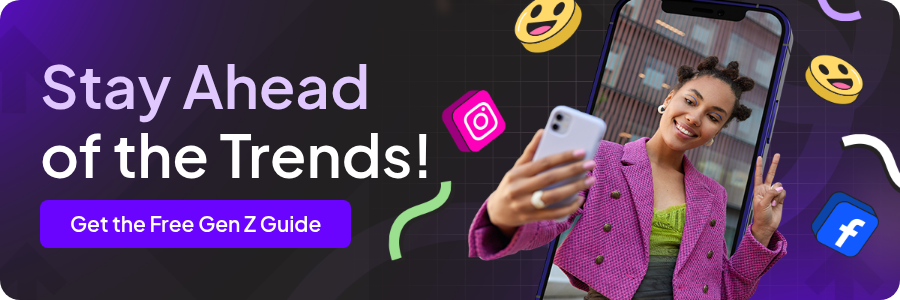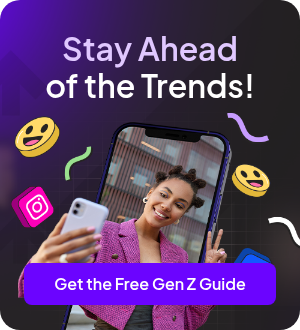Gone are the days when design was a one-size-fits-all approach. Today’s consumers, especially Gen Z, expect to see themselves reflected in the brands they support. If your designs don’t include a diverse range of voices, experiences, and perspectives, you risk alienating a generation that values representation more than ever. Ready to break down the barriers and create designs that truly connect? Let’s dive into how inclusivity is shaping the future of design!

marketing
The Future of Design is Inclusive! Breaking Barriers in 2025
Gone are the days when design was a one-size-fits-all approach. Today’s consumers, especially Gen Z, expect to see themselves reflected in the brands they support. If your designs don’t include a diverse range of voices, experiences, and perspectives, you risk alienating a generation that values representation more than ever. Ready to break down the barriers and create designs that truly connect? Let’s dive into how inclusivity is shaping the future of design!
Reading
Why Inclusivity Matters More Than Ever
Inclusivity isn’t just a trend; it’s a business imperative. With Gen Z leading the charge, brands are being called to show up for every demographic. Whether it’s gender, race, body type, or ability, inclusive design celebrates diversity and reflects the real world.
📊 Did You Know?
A recent study found that 67% of Gen Z consumers want to see more diverse representation in ads, packaging, and media. It’s clear: if your designs aren’t inclusive, you’re missing a massive opportunity.

Breaking Stereotypes: The Power of Authentic Representation
Gen Z is hyper-aware of the world around them, and they’re quick to spot stereotypes or exclusionary messaging. They want to see real people in your designs—not just perfect models or the same old tropes. Inclusive design isn’t just about ticking boxes; it’s about showing the diverse experiences and identities that make us who we are.
How To Do It:
- Show Diversity in Your Imagery: Use visuals that represent people of all backgrounds, body types, abilities, and lifestyles.
- Avoid Tokenism: Don’t add diversity for the sake of it. Make sure the representation feels authentic and true to your brand’s values.
- Tell Real Stories: Share stories that reflect different experiences and perspectives. Let your audience see themselves in your brand’s narrative.
If you want to learn more about Authentic Representation, check out our article: Why Gen Z Will Ignore Your Brand in 2025 (Unless You Do This)
How Inclusive Design Boosts Brand Loyalty
When a brand embraces inclusivity, it fosters a sense of belonging among its audience. This connection isn’t just emotional—it’s powerful. Consumers who feel represented are more likely to engage with your brand, share your content, and recommend your products to others. In fact, 60% of Gen Z consumers say they are more likely to trust a brand that aligns with their values, including inclusivity.
Real-World Example:
Look at brands like Fenty Beauty by Rihanna, which revolutionized the beauty industry by offering foundation shades for every skin tone. The brand’s success speaks for itself. It’s clear that when you design with inclusivity at the forefront, you build a loyal community that feels seen and heard.

The Rise of Accessible Design: Making Sure Everyone’s Included
Inclusivity goes beyond race and gender—it also includes accessibility. Designing with accessibility in mind ensures that everyone, including those with disabilities, can engage with your content. Whether it’s creating designs with color contrast for the visually impaired, offering alternative text for images, or making websites and apps more navigable, accessibility is a cornerstone of inclusive design.
Tips for Accessible Design:
- Use High Contrast: Make sure text stands out from backgrounds to improve readability.
- Create Alt Text for Images: Help users with visual impairments understand your content.
- Design Mobile-Friendly Interfaces: Ensure your website or app is easy to use on any device.
Inclusivity Is the Future of Design—But It’s Not Just for 2025
As we look ahead, inclusivity will only continue to grow in importance. The more brands listen to their audience and design for diversity, the stronger the emotional connection they’ll create. In 2025, inclusivity won’t just be a nice-to-have feature—it’ll be a necessity. So, if your brand isn’t already embracing diverse perspectives in your designs, now’s the time to start.

Want to Lead the Way in 2025?
The future of design is inclusive, and it’s up to you to break down the barriers. Ready to learn more about how to design for Gen Z and make your brand stand out? Check out our full guide: Vibe Check! What Gen Z Wants in 2025 and discover actionable strategies to create designs that truly resonate.


















